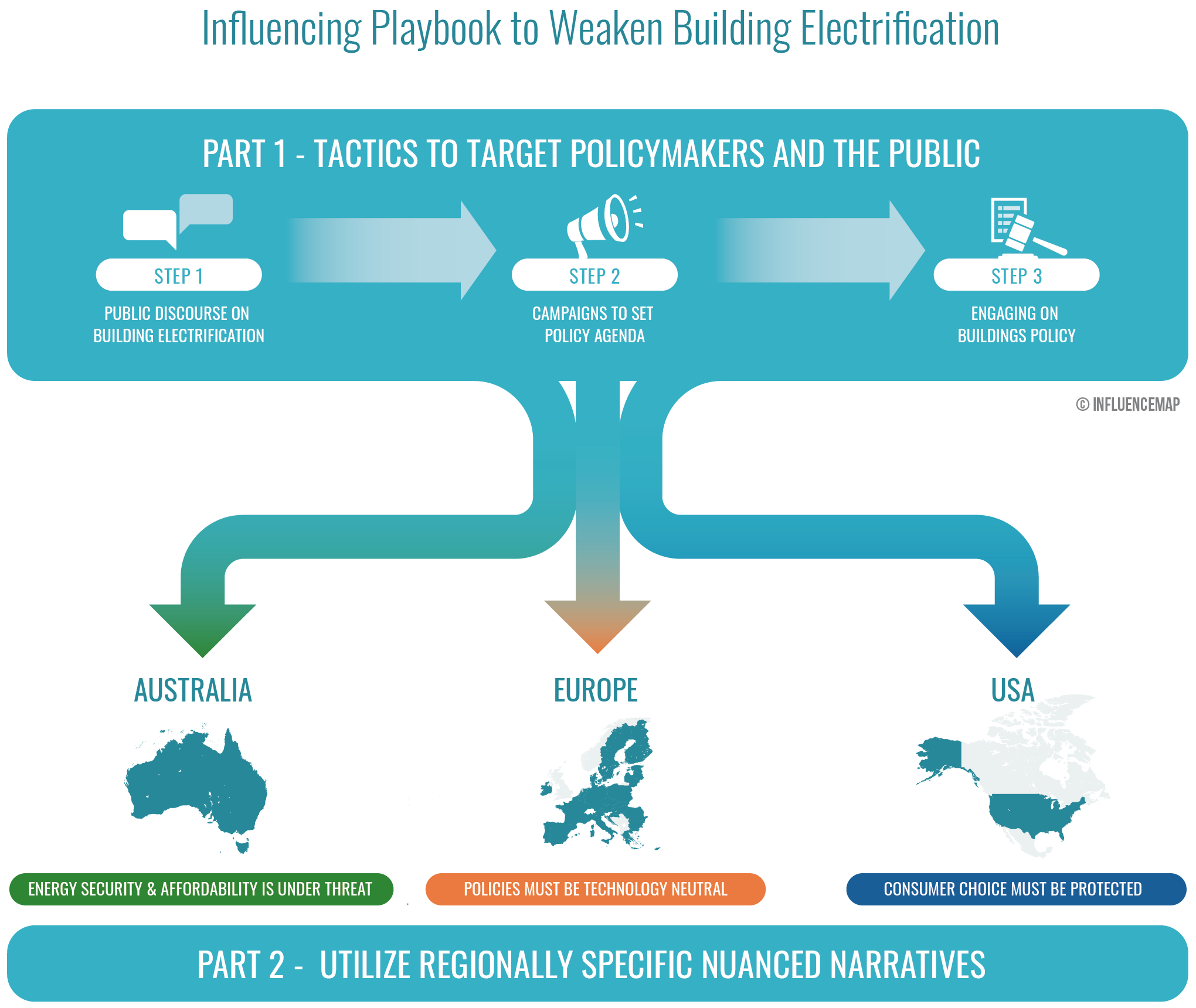Comment from Dr. Gaurab Basu, Assistant Professor Harvard Medical School
Never before has there been a greater understanding of the grave dangers climate change poses to our health and the stability of our societies. But, the fossil fuel industry is maliciously trying to promote their corporate interests, to the detriment of the safety of our children. We must fight back.
Comment from Dr. Kate Wylie, Executive Director of Doctors for the Environment Australia
The undermining of electrification efforts by the fossil fuel industry is highly concerning from a health perspective. Wind and solar are cleaner and healthier, and choosing these to power our communities is the right ethical choice. The pattern recognized by InfluenceMap shows a disturbing global effort and a disregard for the weight of health literature on the health harms caused by coal, oil, and gas.
A new report by InfluenceMap shows how the oil & gas and utilities industries are leveraging a common fossil fuel playbook to prolong the use of fossil gas in buildings globally. The analysis includes three case studies from Australia, the European Union, and the United States to demonstrate how these industries are deploying specific narratives to block or weaken building electrification policies in these regions. The findings indicate that this strategic and coordinated campaign is risking public health and climate goals by delaying building electrification policy.
